[안심]Why Adding A Malpractice Compensation To Your Life Can Make All The A …
38
2023.03.07 04:02
짧은주소
본문
What Is Malpractice Law?
Generally, malpractice law pertains to legal lapses or wrongdoing, or malpractice lawyer breaches of contract, fiduciary duty or negligence. These errors can cause serious injury to patients or clients. This article will examine the most common types of malpractice law, and will discuss issues such as statutes of limitations and punitive damages.
Actual and causality proximate
In a negligence case the term "proximate cause" refers to the legal liability of a defendant in predictable outcomes. The defendant is liable only for injuries they could have predicted, but not for injuries they didn't anticipate.
In order to establish causality at proximate source in a personal injury claim, the plaintiff must establish that the damage was due to the proximate cause. In the majority of cases, this involves the gathering of evidence that will make a compelling argument.
Proximate causation may be the most difficult element of an injury case to prove. The court usually employs the "but-for" test to determine if the plaintiff's injuries wouldn't have occurred if it weren't for the defendant's behavior.
In certain states, the court may apply a "substantial factor" test. The court will need to determine whether the defendant's actions have contributed to the injury in a significant way.
Other jurisdictions do not consider an act of a defendant as proximate unless they are foreseeable. For example, if the defendant is on the wrong side of the road when an accident takes place, the driver could be held liable for the accident. The defendant is still able to make damages claims.
One way to distinguish between the actual and proximate causes is to use the term "in fact" to describe the proxy cause. A person who runs a red light and causes an accident is the primary reason for the accident. A baseball hitting a heavy object can cause injuries.
In some states, the plaintiff could be able prove an proximate reason by asserting that the defendant's behavior caused the injury. For instance in the event that a driver becomes distracted and is speeding through an intersection at a red light, then the accident could be a direct result of the driver's distracted.
Finality is a matter of law as the most important cause for plaintiff's injury. This is the most important aspect in a case of liability. A plaintiff must show that the plaintiff's injuries were a natural consequence of the defendant's actions.
Punitive damages
In contrast to compensatory damages, which are intended to compensate the victim in the end, punitive damages are awarded to punish the perpetrator. These damages are awarded to the defendant due to their reckless or unprofessional behaviour. They are generally given as a multiplier of the non-economic damages.
The most important thing to remember about punitive damages is that they're not granted in every case. They are only awarded when a judge or jury is planning to punish the defendant. Medical malpractice legal is the best example.
Punitive damages can be awarded in an instance of medical malpractice if the doctor acted in an especially negligent manner. If the doctor deliberately injured the patient and caused harm to the patient, the judge or jury could award punitive damages. The doctor can be liable for failing to obtain the results promised to the patient or for not properly touching the patient.
The most important thing to keep in mind when considering punitive damages is that they are designed to serve as a deterrent to others who commit similar acts. The amount of punitive damages awarded may vary depending on the circumstances, but is typically in the range of ten times the amount of initial damages.
A prime example of this is the eroticized transmission phenomenon. This is when patients are in a close relationship with a physician. Hospital administrators are aware that the virus can cause death to all 20 patients in the elderly care ward. Additionally, the hospital has been informed that the virus is spreading in the ward. In the event that this virus is the cause of injuries sustained by a patient, the medical staff must contain the virus.
The jury's award of $500,000 in compensatory damages is subject to adjustment by the judge. The defendant is typically a large company. The defendant must modify its behavior if a plaintiff is able recover $2.5million in punitive damages.
The standard of care in a case of medical malpractice will be considered in the context non-medical malpractice. This could mean the cancellation of safety and health procedures at a medical facility. It could also mean the suspension of medical professionals' license.
Statute of limitations
There are numerous statutes of limitations that are applicable to medical malpractice claims depending on the place you live. The New York medical malpractice statute of limitations, for instance is two years, six months, after the date of malpractice. The time period to file an action can be extended by an additional six months or more under certain circumstances.
It is vital to make a claim if you are injured in a hospital, clinic or another medical facility. You could lose your claim if you fail to act before the statute of limitations expires. It is important to speak with an New York medical malpractice lawyer to determine the appropriate time to make a claim.
The "discovery" rule stops the clock from running for one year after a plaintiff discovers he or she was injured by malpractice. This doesn't mean the plaintiff must be an expert in medicine to know that a mistake has been made. It's just that the law was designed to protect the injured person.
A malpractice lawsuit must be filed in Pennsylvania within two years from the date of discovery. This also applies to minors, which means that parents of a baby who was harmed at birth have until the time their child reaches 18 to file a claim.
The Florida statute of limitations is more complex. For instance the case where a patient is subject to continuous representation, the clock will not start until the attorney stops representing the client. It is also possible to see the clock tick for years after a malpractice event, as long as the attorney continues to represent the victim.
The Oklahoma statute of limitations is similar. It only applies to minor malpractice claims. This makes it a little more complicated. It's still a basic statute. The main difference is that the "one year rule" only applies to the very first time you notice that you have been injured by negligence.
Whatever the case, whether you were injured by a doctor, nurse, or both, time limitations are vital to bringing a successful malpractice case.
Psychiatrists should contact their malpractice attorney insurance company
In regards to the quality of care provided or the level of competence an individual physician is able to demonstrate in their profession psychiatrists have a lot of responsibilities. They are expected by law to provide high quality care, maintain confidential and adhere to standards set by their profession. They should also take additional precautions to ensure that they comply with these standards.
A malpractice lawsuit against a psychiatrist must be proven by the plaintiff that the doctor's actions violated the accepted standard of care. This can mean several actions. The doctor may not have prescribed the appropriate medication or failed to follow up.
Another common accusation against psychiatrists is that they exploit trust relationships. This type of case could include the abuse of sexual relationships, sleeping with patients, or other similar conduct. Whatever the circumstances of the case, it is essential to remember that any breach of this trust is emotionally harmful to the victim.
In addition to adhering to the accepted standard of care, psychiatrists must be sure they follow the appropriate treatment protocols and documenting their efforts to seek medical attention. Communication with patients can be an effective defense in a malpractice attorney lawsuit.
It is essential to notify your malpractice insurance provider when you are suing a psychiatrist. This will ensure that your insurance will cover you. If you fail to do this, the insurance company could refuse to pay the judgmentor could contest the verdict in court.
Psychiatrists who have been sued should seek out an attorney with experience in cases of psychiatric malpractice. They will assist you in understanding the next steps to take and what are likely to encounter during the litigation process.
Although the law is complicated, most states have statutes to protect victims of malpractice lawyer. The laws are different however, most require that you consult an attorney prior to filing any lawsuit.
Although psychiatrists are less likely than other doctors to be accused of negligence, it is possible that they could be accused of malpractice. The liability of psychiatrists is restricted due to the insurance coverage they carry.
Generally, malpractice law pertains to legal lapses or wrongdoing, or malpractice lawyer breaches of contract, fiduciary duty or negligence. These errors can cause serious injury to patients or clients. This article will examine the most common types of malpractice law, and will discuss issues such as statutes of limitations and punitive damages.
Actual and causality proximate
In a negligence case the term "proximate cause" refers to the legal liability of a defendant in predictable outcomes. The defendant is liable only for injuries they could have predicted, but not for injuries they didn't anticipate.
In order to establish causality at proximate source in a personal injury claim, the plaintiff must establish that the damage was due to the proximate cause. In the majority of cases, this involves the gathering of evidence that will make a compelling argument.
Proximate causation may be the most difficult element of an injury case to prove. The court usually employs the "but-for" test to determine if the plaintiff's injuries wouldn't have occurred if it weren't for the defendant's behavior.
In certain states, the court may apply a "substantial factor" test. The court will need to determine whether the defendant's actions have contributed to the injury in a significant way.
Other jurisdictions do not consider an act of a defendant as proximate unless they are foreseeable. For example, if the defendant is on the wrong side of the road when an accident takes place, the driver could be held liable for the accident. The defendant is still able to make damages claims.
One way to distinguish between the actual and proximate causes is to use the term "in fact" to describe the proxy cause. A person who runs a red light and causes an accident is the primary reason for the accident. A baseball hitting a heavy object can cause injuries.
In some states, the plaintiff could be able prove an proximate reason by asserting that the defendant's behavior caused the injury. For instance in the event that a driver becomes distracted and is speeding through an intersection at a red light, then the accident could be a direct result of the driver's distracted.
Finality is a matter of law as the most important cause for plaintiff's injury. This is the most important aspect in a case of liability. A plaintiff must show that the plaintiff's injuries were a natural consequence of the defendant's actions.
Punitive damages
In contrast to compensatory damages, which are intended to compensate the victim in the end, punitive damages are awarded to punish the perpetrator. These damages are awarded to the defendant due to their reckless or unprofessional behaviour. They are generally given as a multiplier of the non-economic damages.
The most important thing to remember about punitive damages is that they're not granted in every case. They are only awarded when a judge or jury is planning to punish the defendant. Medical malpractice legal is the best example.
Punitive damages can be awarded in an instance of medical malpractice if the doctor acted in an especially negligent manner. If the doctor deliberately injured the patient and caused harm to the patient, the judge or jury could award punitive damages. The doctor can be liable for failing to obtain the results promised to the patient or for not properly touching the patient.
The most important thing to keep in mind when considering punitive damages is that they are designed to serve as a deterrent to others who commit similar acts. The amount of punitive damages awarded may vary depending on the circumstances, but is typically in the range of ten times the amount of initial damages.
A prime example of this is the eroticized transmission phenomenon. This is when patients are in a close relationship with a physician. Hospital administrators are aware that the virus can cause death to all 20 patients in the elderly care ward. Additionally, the hospital has been informed that the virus is spreading in the ward. In the event that this virus is the cause of injuries sustained by a patient, the medical staff must contain the virus.
The jury's award of $500,000 in compensatory damages is subject to adjustment by the judge. The defendant is typically a large company. The defendant must modify its behavior if a plaintiff is able recover $2.5million in punitive damages.
The standard of care in a case of medical malpractice will be considered in the context non-medical malpractice. This could mean the cancellation of safety and health procedures at a medical facility. It could also mean the suspension of medical professionals' license.
Statute of limitations
There are numerous statutes of limitations that are applicable to medical malpractice claims depending on the place you live. The New York medical malpractice statute of limitations, for instance is two years, six months, after the date of malpractice. The time period to file an action can be extended by an additional six months or more under certain circumstances.
It is vital to make a claim if you are injured in a hospital, clinic or another medical facility. You could lose your claim if you fail to act before the statute of limitations expires. It is important to speak with an New York medical malpractice lawyer to determine the appropriate time to make a claim.
The "discovery" rule stops the clock from running for one year after a plaintiff discovers he or she was injured by malpractice. This doesn't mean the plaintiff must be an expert in medicine to know that a mistake has been made. It's just that the law was designed to protect the injured person.
A malpractice lawsuit must be filed in Pennsylvania within two years from the date of discovery. This also applies to minors, which means that parents of a baby who was harmed at birth have until the time their child reaches 18 to file a claim.
The Florida statute of limitations is more complex. For instance the case where a patient is subject to continuous representation, the clock will not start until the attorney stops representing the client. It is also possible to see the clock tick for years after a malpractice event, as long as the attorney continues to represent the victim.
The Oklahoma statute of limitations is similar. It only applies to minor malpractice claims. This makes it a little more complicated. It's still a basic statute. The main difference is that the "one year rule" only applies to the very first time you notice that you have been injured by negligence.
Whatever the case, whether you were injured by a doctor, nurse, or both, time limitations are vital to bringing a successful malpractice case.
Psychiatrists should contact their malpractice attorney insurance company
In regards to the quality of care provided or the level of competence an individual physician is able to demonstrate in their profession psychiatrists have a lot of responsibilities. They are expected by law to provide high quality care, maintain confidential and adhere to standards set by their profession. They should also take additional precautions to ensure that they comply with these standards.
A malpractice lawsuit against a psychiatrist must be proven by the plaintiff that the doctor's actions violated the accepted standard of care. This can mean several actions. The doctor may not have prescribed the appropriate medication or failed to follow up.
Another common accusation against psychiatrists is that they exploit trust relationships. This type of case could include the abuse of sexual relationships, sleeping with patients, or other similar conduct. Whatever the circumstances of the case, it is essential to remember that any breach of this trust is emotionally harmful to the victim.
In addition to adhering to the accepted standard of care, psychiatrists must be sure they follow the appropriate treatment protocols and documenting their efforts to seek medical attention. Communication with patients can be an effective defense in a malpractice attorney lawsuit.
It is essential to notify your malpractice insurance provider when you are suing a psychiatrist. This will ensure that your insurance will cover you. If you fail to do this, the insurance company could refuse to pay the judgmentor could contest the verdict in court.
Psychiatrists who have been sued should seek out an attorney with experience in cases of psychiatric malpractice. They will assist you in understanding the next steps to take and what are likely to encounter during the litigation process.
Although the law is complicated, most states have statutes to protect victims of malpractice lawyer. The laws are different however, most require that you consult an attorney prior to filing any lawsuit.
Although psychiatrists are less likely than other doctors to be accused of negligence, it is possible that they could be accused of malpractice. The liability of psychiatrists is restricted due to the insurance coverage they carry.






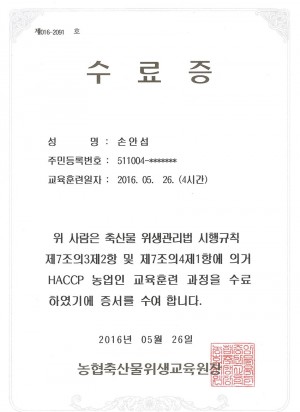
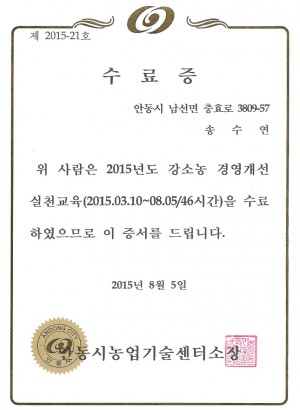
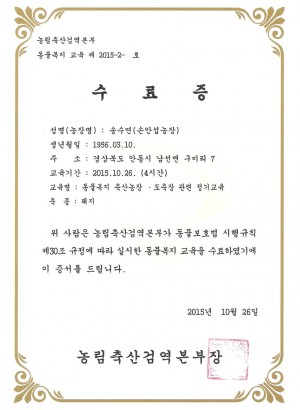
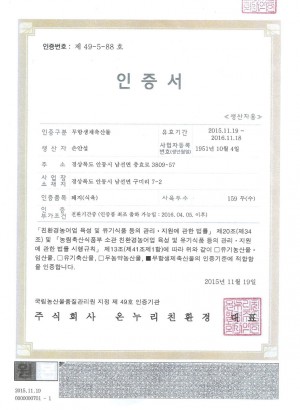
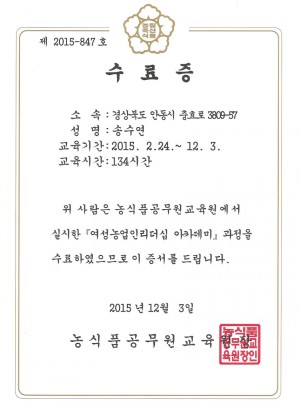


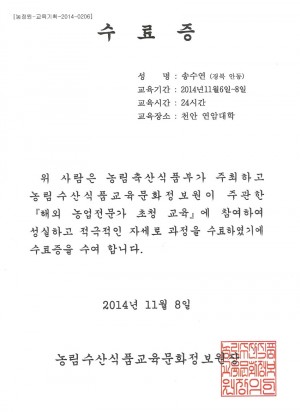

댓글목록
등록된 댓글이 없습니다.